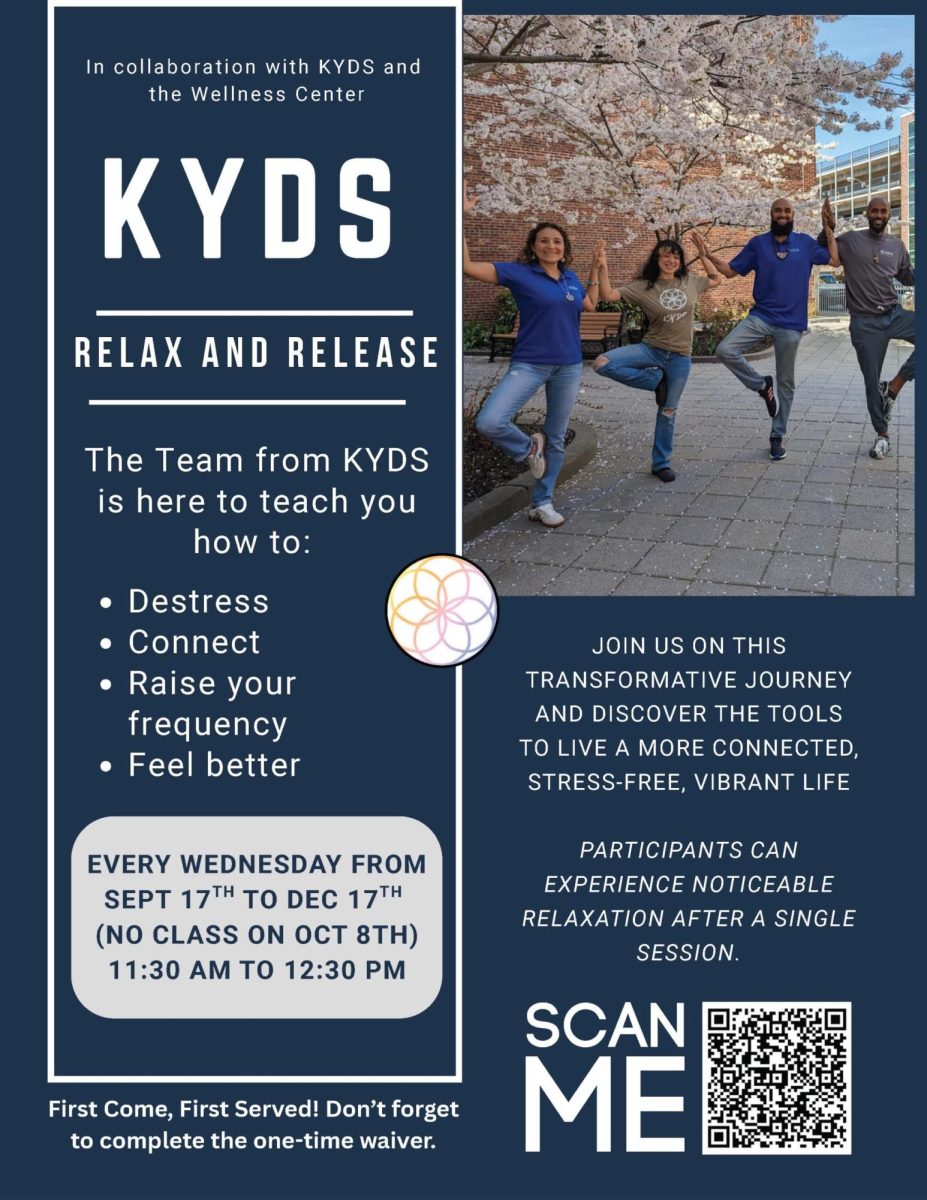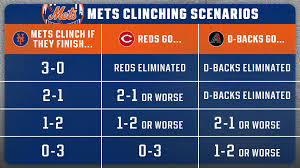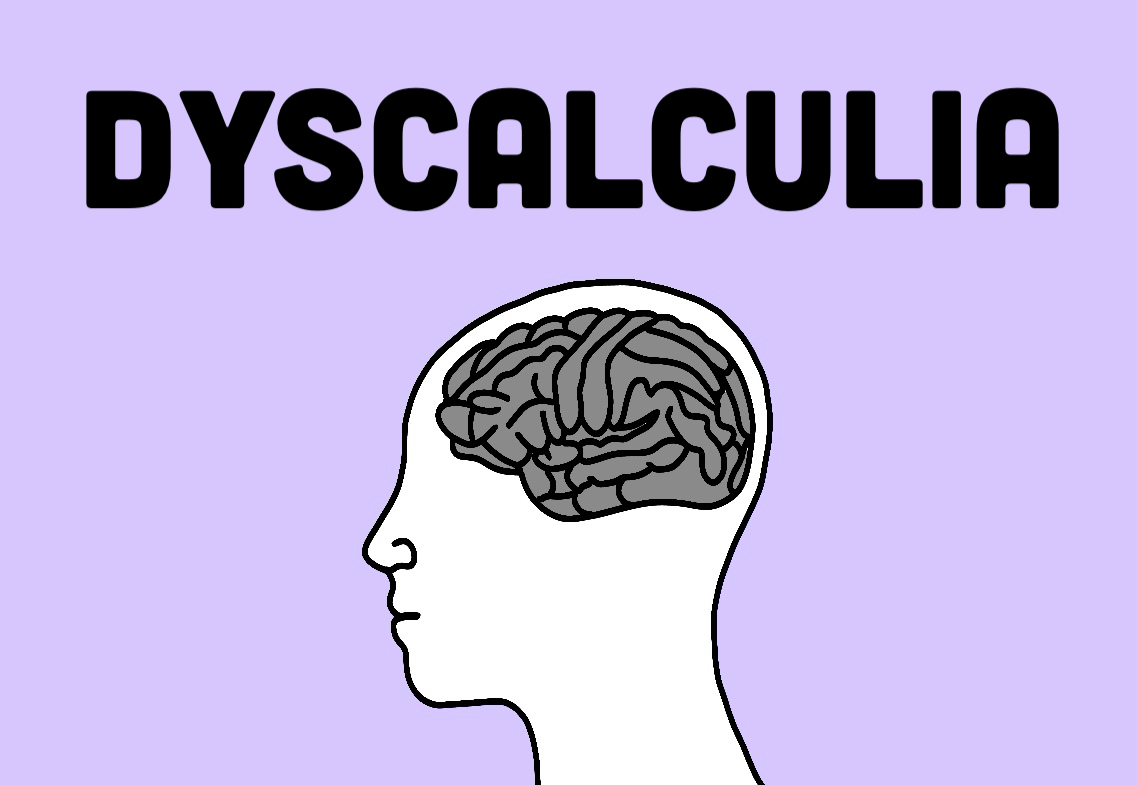Dyscalculia is not well known or even recognized, but to those who experience this debilitating disorder, the symptoms are very real. Despite maintaining a 4.0, I still felt dumb. You see, I just can’t do math. Like… I CANNOT remember the formulas, understand the concepts, or even comprehend how, what or why we are doing this work.
I was recently diagnosed with dyscalculia and that experience changed my life. I told my doctor I was anxious and frustrated with a math class and was about to give up – for the second time. The conversation then went like this:
Doctor: “How are you with time management?”
Me: “Terrible! I’m always late.”
Doctor: “How about directions – driving or even walking – do you get lost easily?”
Me: “I’m embarrassed to say, if it wasn’t for GPS, I couldn’t find my way anywhere. Even locally – I sometimes forget what streets intersect where.”
Doctor: “And when you meet people, are you good with names?”
Me: “I always forget names. Sometimes I write names on a little slip of paper and stick it in my notebook, so I’ll remember the names of classmates.”
The questions continued until he said, “You have dyscalculia. I’m surprised it’s taken you this long to find out.”
He told me that dyscalculia is a math learning disability/disorder that affects the brain’s ability to perform calculations, understand numbers and grasp mathematical concepts. Other clues include poor time management, getting lost easily, forgetting names and other seemingly unrelated day-to-day challenges. (Complete list below.)
A study published in the National Library of Medicine demonstrated that compared to math-abled individuals, those with dyscalculia have reduced gray and white matter volumes in the numerical network of their brains:
In conclusion, our results underscore that dyscalculia is a persistent learning disorder accompanied by deficits in number processing and reduced gray and white matter volumes in number-related brain areas.
https://www.ncbi.nlm.nih.gov/pmc/articles/PMC7379856/
Can I repeat that? The brains of people with dyscalculia do not have the gray and white matter needed to do math.
I suddenly didn’t feel so dumb. I had to learn more.
The DSM (Diagnostic and Statistical Manual) guide is the ultimate reference book on brain-related conditions and disorders. And sure enough, dyscalculia is right there:
DSM-IV Codes 315.1 Mathematics Disorder
“As measured by a standardized test that is given individually, the patient’s mathematical ability is substantially less than you would expect considering age, intelligence and education.”
This deficiency materially impedes academic achievement or daily living.
Dyscalculia makes it difficult to meet the minimum quantitative reasoning requirement to pass a college level math class.
There is even an organization to help individuals with this disorder, Dyscalculia.org. https://www.dyscalculia.org/home
Dyscalculia.org is celebrating 29 years of operation. Why is dyscalculia still not recognized in academia? Why is the false idea that if a struggling student is forced to repeat abstract math concepts, they will suddenly learn them? The truth is, the struggling student’s brain shuts down as anxiety increases, and any possibility of grasping that information is lost.
According to Eloy Ortiz Oakley, chancellor of the California community college system, math concepts are the single most failed courses in community colleges across the country. At these colleges, 60 percent of those enrolled are required to take at least one math course. Most – nearly 80 percent – never complete that requirement. If you’re not a STEM major, why are students still required to take these courses?
Studies indicate that dyscalculia, like dyslexia, runs in families – my brother is dyslexic and there is a family history of learning differently. Those with Dyscalculia are often verbally astute, or even gifted. Also, artistic and creative. But because of the educational requirements and value placed on STEM studies, the struggling dyscalculia student or adult often feels like an imposter or even stupid and may never achieve their full potential.
I recently made a quick note about dyscalculia on a funny Instagram post about someone struggling to figure out a group tip. Within minutes, 50 people messaged me and asked for more information, and it has not stopped.
I hope that by sharing my story, I may help a student who studies and does the work but is struggling and discouraged. There is hope. Contact Dyscalculia.org. https://www.dyscalculia.org/college-dyscalculia
Additional dyscalculia symptoms:
*Difficulty keeping track of time, managing time and schedules, often late.
*Difficulty with directions, left-right confusion, N-E-S-W navigation
*Poor sense of direction. Lost easily.
*Forgetting names
*Bad at financial planning and money management.
*Too slow at mental math to figure totals, change due, tip, or tax.
*Inability to grasp and remember math concepts, rules, formulas, sequences.
*Poor memory (retention and retrieval) of math concepts.
*May be able to perform math operations one day but draw a blank the next.
*Able to do the book work or homework but then fail tests.
*Unable to imagine or “picture” mechanical processes.
*Poor memory for the “layout” of things. Gets lost or disoriented easily.
* May misplace things often and seem absent-minded.
*Difficulty with motor sequencing- noticeable in athletic performances
*Difficulty remembering how to keep score in games, like bowling and cards.
*Often loses track of whose turn it is.
* Limited strategic planning ability for games like chess.
*Experience anxiety during math tasks.
*Use fingers to count. Lose track when counting. Cannot do mental math.
*Numbers and math seem like a foreign language.
Categories:
Do You Struggle With Math? Maybe It’s Dyscalculia
A column, By Isabel Shaw
September 23, 2024
1
0
More to Discover




























Kelly Thulen • Oct 16, 2024 at 3:56 PM
What a great article! I learned a lot there, and it strikes me as very important stuff to know and understand. Thank you for diving into this subject and spreading awareness!